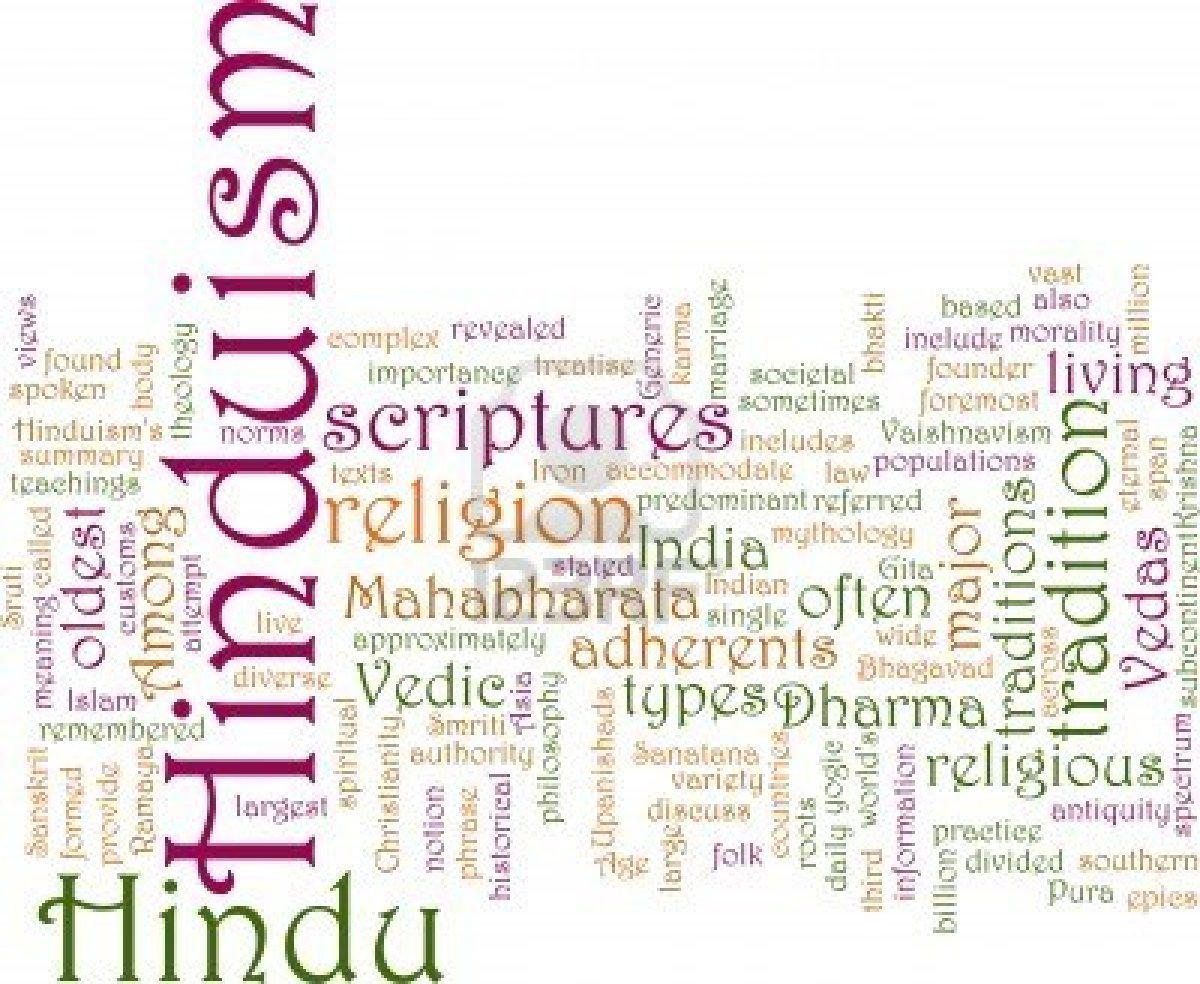Hinduism is a widespread Religion in South and South East Asia. But What actually we mean by Hinduism? Is it a single religion or a confederation of many religions and faiths?
Hinduism is the major religion of the people of India and Nepal. A large number of Hindus are found also in Sri Lanka, some South East Countries, Kenya, Fiji, Mauritius, Suriname, Europe and North America. Most of the people and law takes Hinduism as a single religion, but in fact Hinduism is a confederation of many religions and faiths of ancient and medieval India. All the religions and faiths are amalgamated so deeply, that for the lay followers Hinduism has become a single religion. A positive result of this is that most of the Hindus love religious harmony.
The Word ‘Hindu’
A surprising thing is that in any of ancient and early medieval religious scriptures of Hindus we do not find any reference to the word Hindu. Not in any of the 4 Veds, Upanishids, Shrutis & Smrutis, Ramayan, Mahabharat, Geeta, Purans. Actually the word Hindu was coined by the people of Western Asia who invaded India in the beginning of second millennium. They used this word for all the people living in India. Clearly, the word Hindu was not used in religious term. The word was just a synonymous of the word Native.
It was the later period of the Mogul rule, in which the word began to get a religious meaning. The word was well established in India during British rule. The first census of India, which was conducted in 1872, set the word for religious identity of Indian people who were not Muslims, Christians, Buddhists, Jains, Sikhs or Parasis…..
Before getting this new identity, the Hindus were known mainly as Shaiv or Vaishnav.
Influence by other Religions
According to many scholars, the base of present day Hinduism is Shaivism. Shaivism is one of the most oldest religious traditions of India. Even today, the highest number of Hindus follow Shaivism. Shiv is the main God of the Shaivites. Another popular deity of Hindus is Ganesh, who is a son of Shiv.
Vaishnavism is another popular tradition in Hinduism. The followers of Vaishnavism worship the God Vishnu and his Avatars Ram and Krishna.
Although Shaivism and Vaishnavism were two separate faiths in ancient times, they started to merge in one another in early medieval period. Today, most of the Hindus have adopted both the traditions without any bias.
Present day Hinduism is greatly influenced by other religions like Vedic, Jainism and Buddhism. Most of the rituals in Hinduism came from Vedic Religion, Vegetarianism and Compassion came from Jainism.
Religious Tolerance of Hindus
Most of the Hindus are tolerant towards other religions. Indian community is basically caste based, not religion based. It is not necessary for a Hindu caste to stick up with any single religion. I would like to share my observations about this fact.
In Punjab, a northern state of India, Sikhism is the most popular religion. Most of the Hindus in this state visit Sikh Gurudwaras and pray their. They have a great faith in Sikh Gurus. Same thing is about Jainism. Although Jainism is a minority religion in Punjab, the Hindus treat it as their own religion. In fact, Punjabi Hindus have given many great Jain ascetics in modern era. In Punjab, a single caste may have followers of Sikhism, Hinduism, Arya Samaj and Jainism and in some cases, even Islam.
Punjab is a border state and the Punjabis have suffered a lot in during the partition of India, and the wars against Pakistan. Even then, Punjabi Hindus and others do not hate Muslims, Islam or Pakistan.
This tolerance is not limited to Hindus of Punjab, but we can see such examples all over India. There are hundreds of thousands of villages in India, and most of the villages have Durgahs, the tombs of Muslim Fakirs. Such Dargahs are managed and looked up mostly by Hindus.
A common Hindu likes to attend religious discourse of Jain monks, Sikh Gurus and many Hindus occasionally attend prayers at Churches.
According to Hindu law, if a Hindu converts to Sikhism, Jainism or Buddhism, it is not considered as religious conversion.
This is the real identity of present day Hindus, which should be followed by others. But in last few decades, few intolerant Hindus are disturbing this tradition, which is a wrong sign.






